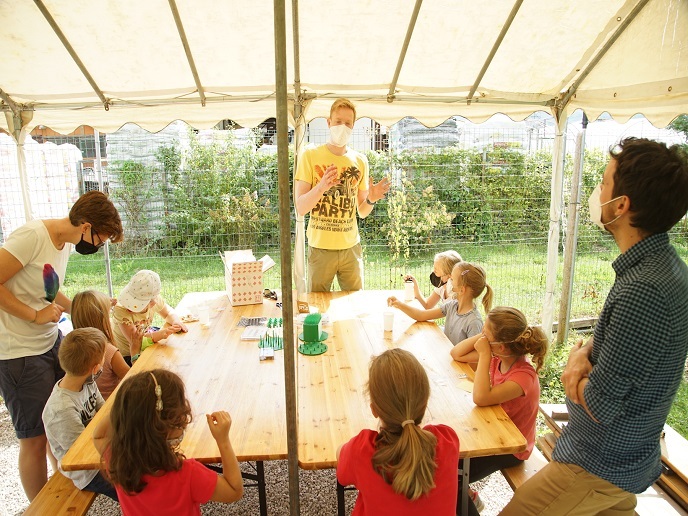Novel platform helping to achieve work-life balance
Insufficient and unaffordable childcare services, augmented workloads and increased working hours are some of the reasons why many Europeans over the last decade have found it increasingly challenging to balance work and family life. On top of this, the COVID-19 pandemic has made it hard for many families to achieve this balance. Addressing these challenges, the EU-funded Families_Share project created a bottom-up solution – a childcare model – and co-designed an open-source platform with organisational and networking functionalities that supports families in self-organising childcare activities. Agostino Cortesi, project coordinator and professor at Ca' Foscari University of Venice, explains: “We have built on current practices that are already leveraging on mutual help and support amongst families, such as time banks and social streets, and we have exploited the potential of ICT networks and mobile technologies to increase the effectiveness of participatory innovation.”
Connecting working parents
The project, developed in seven City Labs, involved the parents of children aged 3-11 years, living in the same neighbourhoods. Cortesi notes: “Taking into account children’s privacy and safety, parents co-designed a platform where they can take turns organising recreational activities for their children.” They can engage in various activities, such as share learning sources and agree on timesharing schemes for mutual support in childcare and after-school activities. This helps to improve work-life balance as well as increase the quality of learning opportunities for their children. With over 2 000 registered users, the platform has also paved the way for new neighbourhood-based communities. “It has helped strengthen bonds with existing local communities and, due to its affordability and inclusive nature, has enabled the participation of vulnerable families,” adds Cortesi. The platform can also be easily adopted by NGOs, municipalities and companies in different contexts. Cortesi acknowledges one thing: “While the COVID-19 outbreak had a dramatic impact on the project’s activities, most City Labs engaged parents in collaborative homework and games among small groups of families. Workshops, talks and information sessions were organised to support parents towards a new work-life balance.” The project also provided supportive guidelines for organising summer activities that complied with the restrictions imposed at different levels of government. “A sense of community has emerged in all City Labs, especially during the pandemic where families share a strong need for socialisation.”
Toolkits supporting different contexts
The project has received positive feedback from families, with many expressing their willingness to continue using the platform. It is expected that Families_Share’s dissemination activities will result in extensive adoption of the project’s solution around Europe. Foreseeing this, the project designed and delivered www.families-share-toolkit.eu (toolkits) for parents, NGOs, companies, municipalities and developers (for the app deployment) in five languages: English, Italian, Greek, Dutch and Hungarian. “These toolkits contain all you need to replicate the Families_Share solution to different contexts. The technical support to the platform will be provided by the consortium partner ViLabs for another 2 years. A deployment guide for developers to install the platform and a user guide are part of the toolkits,” concludes Cortesi. The work of Families_Share, through the socialisation of childcare, has helped parents find a balance between work and private life. It has positively increased community building as well as child and parent well-being, and has enabled the social inclusion of vulnerable groups.
Keywords
Families_Share, work-life balance, open-source platform, childcare model, working parents



